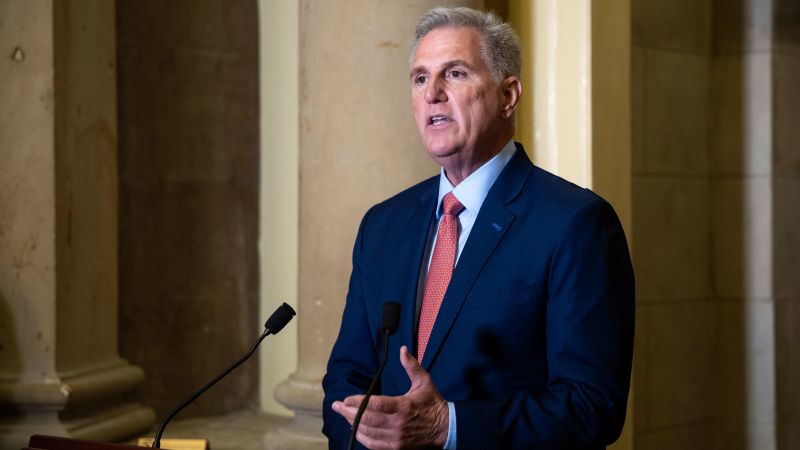The White House plans to send a letter to top US news executives on Wednesday, urging them to intensify their scrutiny of House Republicans after Speaker Kevin McCarthy launched an impeachment inquiry into President Joe Biden, despite having found no evidence of a crime.
“It’s time for the media to ramp up its scrutiny of House Republicans for opening an impeachment inquiry based on lies,” Ian Sams, a spokesperson for the White House Counsel’s Office, wrote in the letter, according to a draft copy obtained by CNN.
The letter, which said an impeachment inquiry with no supporting evidence should “set off alarm bells for news organizations,” will be sent to executives helming the nation’s largest news organizations, including CNN, The New York Times, Fox News, the Associated Press, CBS News, and others, a White House official familiar with the matter said.



Why is the administration telling news execs what to report on, and how to frame it?
They aren’t. They’re asking the news outlets to do the due diligence they should already be doing.
It’s weird that we are at the point where suggesting that journalists do actual journalism (not report “both sides”) is considered something outside the norm. So shameful.
“If someone says it’s raining, and another person says it’s dry, it’s not your job to quote them both. Your job is to look out the f*cking window and find out which is true”
I couldn’t agree more. While there is room for both-sides-ism, that’s only when both sides have actual, valid points. Side A’s lies are not equal to Side B’s facts.
No, when it comes to journalism specifically, it’s also when one or more sides are absolutely batshit insane. Actually, even especially when one or more sides is absolutely batshit insane.
If there is someone who says it’s dry when it’s obviously raining, that is absolutely more newsworthy than the mere fact that it’s raining.
It would be fairness-biased to pretend like it could possibly be true that it’s not raining, but yes, it is absolutely journalism to present all available sides, every single time. It’s not the journalist’s job to tell you which one is right — it’s their job to show you what is out there.
What you’re describing is propaganda or advocacy.
But they can absolutely state when something is wrong while still being factual.
“Despite claims from politician X that the sky opened up and ceased to rain in Y when he asked God for sunlight, here were are in Y right now while record rain and floods continue”.
Sure, that’s fair enough. That’s fact-checking. But refusing to report on something ostensibly “because it wasn’t correct” isn’t an ethical journalistic practice. That would be propaganda.